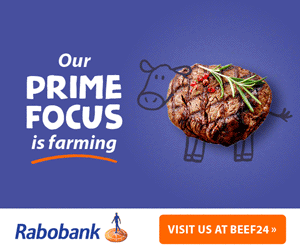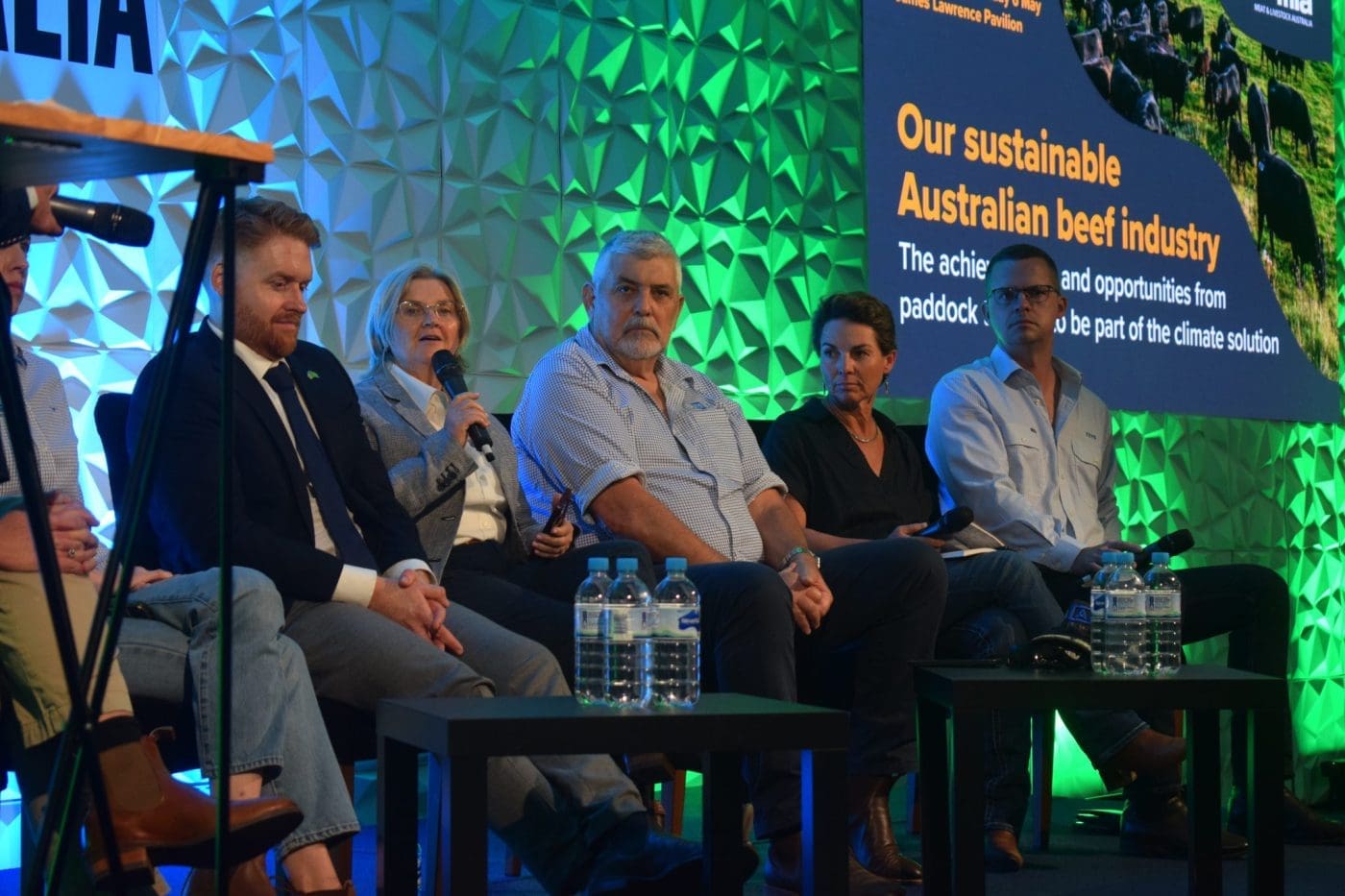
Alastair Rayner
Beef Central genetics editor Al Rayner is at Beef 2024, reporting on issues and challenges in the animal genomics and genetics field. Here is the first of his observations from the early seminar programs….
BEEF 2024 has commenced in Rockhampton, showcasing the latest developments in the Australian industry, as well as offering attendees a chance to review and consider progress towards a number of industry goals.
Meat & Livestock Australia hosted a session for producers to highlight developments across all sectors of the industry from seedstock production, extensive grazing, lotfeeding and processing are making within the context of industry sustainability.
Sustainability is often considered as a term associated with environmental management and increasingly carbon emissions and reduction. However, as highlighted by panellist, Michael Rogers from Teys Australia, sustainability has to be seen as creating and ensuring a viable supply chain across all sectors of the industry.
To this end, there is a need to consider broader issues such as animal welfare and human resources as well as the more commonly considered issues associated with carbon emissions or environmental impact.
One of the key messages from the session was offered by Julia Waite CN30 Manager with MLA who said that while the industry was focussed on Carbon Neutral by 2030, this did not mean every farm has to become Carbon Neutral. Rather the goal of CN30 is an industry goal that is being achieved collectively across all sectors of the supply chain.
From a producer’s perspective, these two points are key take home messages to consider and potentially review in the context of individual programs:
Firstly, that a sustainable beef enterprise is not only focussed on environmental outcomes but consider the broader messages customers are sharing towards expectations such as animal welfare standards, transparency, and robust verification of the standards the industry sets for production. In many cases producers may not need to significantly alter their production systems if they are able to show how their current practices align with the standards the industry has set on sustainable practice.
A key message of the session was that the industry’s adoption of the Australian Beef Sustainability Framework offers individual producers a clear set of guidelines that can be used to demonstrate sustainable practices guiding production as well as the practice that occur further along the supply chain.
The second message, that CN30 is an industry goal that will be achieved through the collective action of the industry is also a helpful message for producers. In the context of breeding systems, the role of genetics to make an industry contribution towards this goal, without fundamentally changing too many variables within an enterprise is one many producers could explore.
 An example was presented by another speaker, Erica Halliday of Ben Nevis Angus near Walcha NSW. She described her involvement through Angus Australia in research aimed at identifying animals that were genetically lower producers of methane, while still meeting production goals for growth and reproduction.
An example was presented by another speaker, Erica Halliday of Ben Nevis Angus near Walcha NSW. She described her involvement through Angus Australia in research aimed at identifying animals that were genetically lower producers of methane, while still meeting production goals for growth and reproduction.
This research should ultimately contribute to producers being able to select for animals that still meet key production traits but also contribute towards the broader industry goal of CN30. In this case it may not fundamentally change the structure and operation of an enterprise, however selection for these traits would have the additional benefit of a direct reduction on methane production.
Long term changes
Throughout the session, the audience was reminded that genetics offers long term cumulative change within breeding herds. It was highlighted that genetics can contribute to ensuring social licence can continue to be maintained within beef production in ways that included welfare considerations, such as selection for polledness, improved temperament as well as the more high-profile traits of feed efficiency and reduced methane production.
A sustainable industry is a viable industry, and producers who address these factors that contribute to improved animal welfare outcomes, safer workplaces through easier handled cattle, as continuing to meet consumer expectations for eating quality are contributing to the overall viability of the industry.
As a starting point for Beef 2024, these messages have relevance for all producers and could be useful in shaping selection and production expectations into the future.
Alastair Rayner is the Principal of RaynerAg, an agricultural advisory service based in NSW. RaynerAg is affiliated with BJA Stock & Station Agents. He regularly lists and sell cattle for clients as well attending bull sales to support client purchases. Alastair provides pre-sale selections and classifications for seedstock producers in NSW, Qld, and Victoria. He can be contacted here or through his website www.raynerag.com.au

